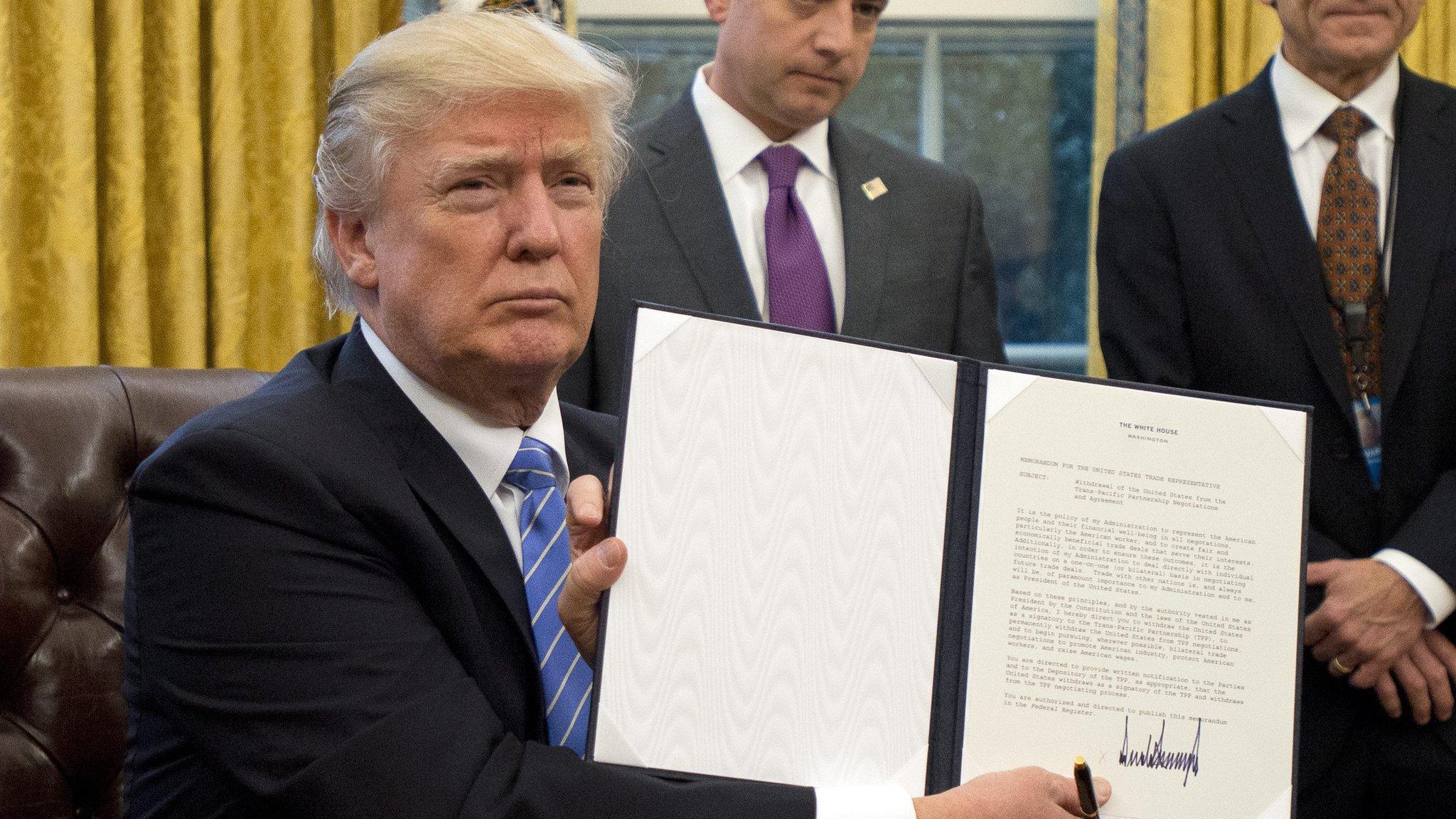TPP: Could UK really join Pacific trade group?
- Published
- comments
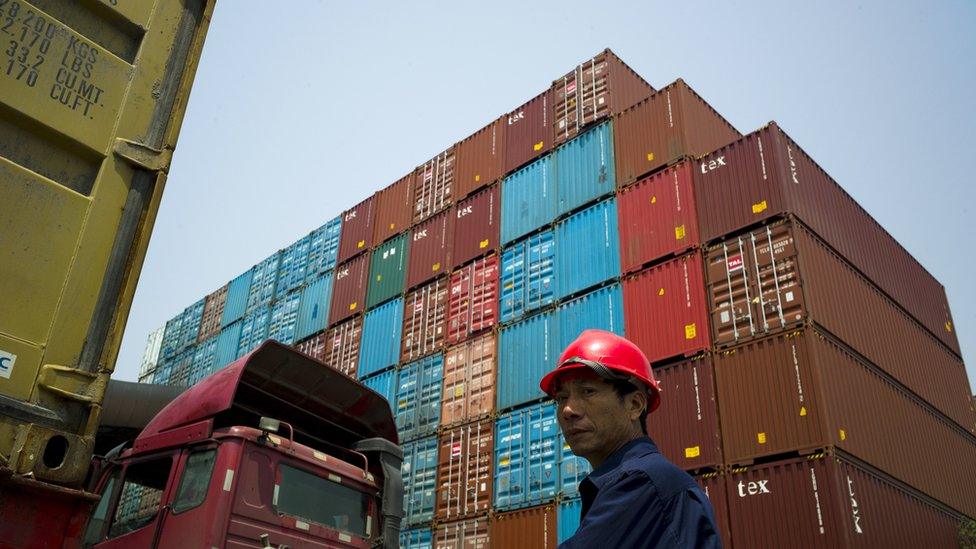
Britain is reportedly exploring joining the Trans Pacific-Partnership (TPP), as part of efforts to map out its trade future after Brexit.
Ministers have held informal talks on joining the proposed free trade group that includes 11 countries bordering the Pacific Ocean, according to the Financial Times., external
And International Trade Secretary Liam Fox has not ruled out the UK joining the TPP.
Britain would be the first member of the trade agreement to not border the Pacific Ocean or the South China Sea.
Mr Fox said the UK wanted to see how the TPP evolved after America's exit from it before making such a move.
However, even mention of Britain entering negotiations has been met with scepticism from some trade experts who argue it's unlikely to lead to a deal - and even if it did happen, the UK would not have much clout.
What is the TPP?
The TPP pact is designed to deepen economic ties between member nations, by slashing tariffs and fostering trade to boost growth. The idea is to create a new single market not dissimilar to the EU.
Following eight years of negotiations an agreement had been reached, but that was thrown into doubt after President Trump honoured a campaign pledge and pulled out of the trade pact last year.
But the remaining 11 members - Canada, Australia, Chile, New Zealand, Brunei, Singapore, Japan, Malaysia, Mexico, Peru and Vietnam - have pressed on and are working towards ratifying an agreement which does not include the US.
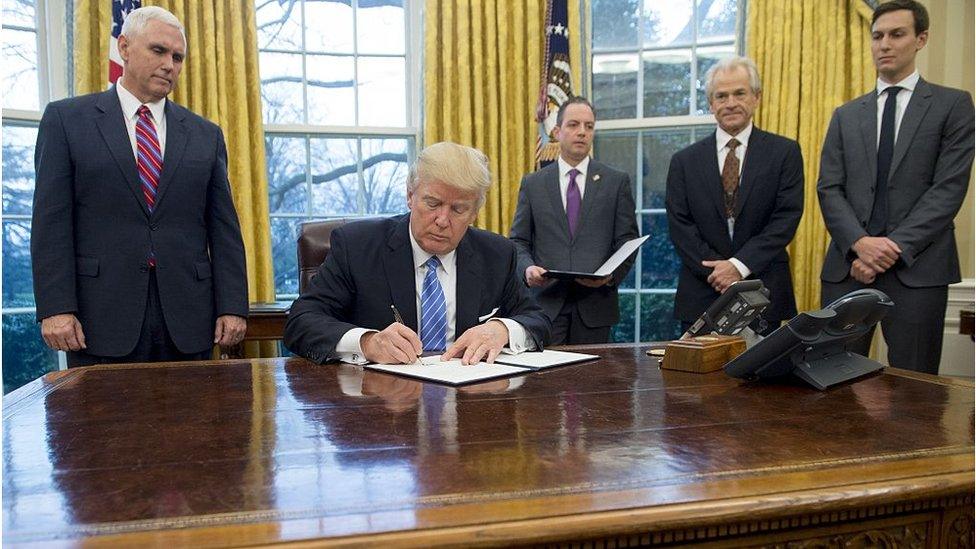
Mr Trump signs an executive order to pull out of the TPP
What would be in it for the UK?
Put simply, fresh trade opportunities after Brexit.
However, the very possibility of the UK entering into these talks has drawn criticism.
Labour MP and Open Britain supporter Chuka Umunna says new trade deals "would not come close to making up for lost trade with the EU after a hard Brexit".
And if the UK did join the TPP, it risks holding "little leverage" in talks, according to Aaron Connelly, research fellow at the Lowy Institute for International Policy.
He says nations are highly unlikely to reopen negotiations on sensitive matters, simply to accommodate the UK.
Given the urgency to seal a deal, Mr Connelly warns the UK would be a "price taker" on the terms of the pact, particularly in areas like pharmaceuticals, state-owned enterprises, labour and the environment.
"If Brexit was about symbolically taking back control in these areas, then joining the TPP would do little to accomplish that," he added.
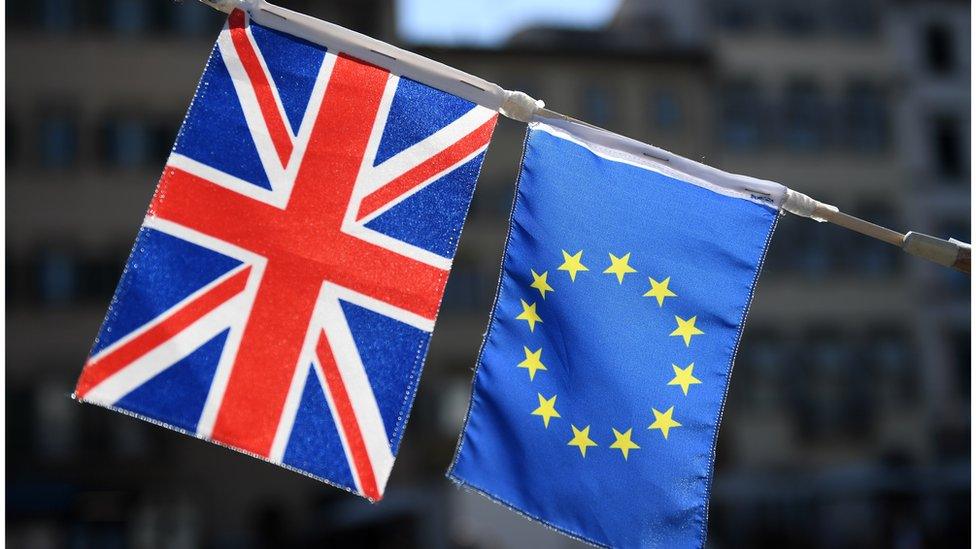
So is a deal likely?
A Department for International Trade spokesman says it is "early days" in the UK's quest to sign new deals.
"We have set up 14 trade 'working groups' across 21 countries to explore the best ways of progressing our trade and investment relationships across the world."
The government was "not excluding future talks" on trade agreements with group of countries.
If included, the UK would expand the reach of the TPP to countries beyond those that border the Pacific Ocean.
"It had always been the idea that the TPP would expand," says James Crabtree, associate professor of practice at the Lee Kuan Yew School of Public Policy in Singapore.
But he argues practical constraints make the UK's inclusion in the pact unlikely.
"The problem is there are all sorts of barriers to this happening," Mr Crabtree says.
Those include the TPP having not yet been ratified and the considerable uncertainty over the UK's final deal with the EU.
"It all sounds like a fairly desperate attempt by the British government to show that it has a vision for what happens after Brexit.
"They don't have many options, and trying to get into this symbolises that Britain is serious about trying to build trade relationships."

Analysis: By Andrew Walker, BBC economics correspondent
For some supporters of leaving the EU the opportunity to do new trade deals was one of the great attractions.
The members of TPP currently account for about 8% of British exports. The biggest single destination for UK goods and services in that group is Japan.
Easier access would certainly be worth having for many British exporters although they already have it with some TPP countries through deals done by the EU, and it's very unlikely to be enough on its own to compensate if there were to be any significant losses to trade with the remaining EU countries.
The British government is looking at other possibilities, the most important of which is the US.
At the time of the referendum, a negotiation with TPP would have encompassed the US as it was a member.
That would have made TPP a very important negotiating partner though still smaller than the EU as a British export destination.
But President Trump withdrew the US from TPP so the British government will have to negotiate separately.
- Published3 January 2018
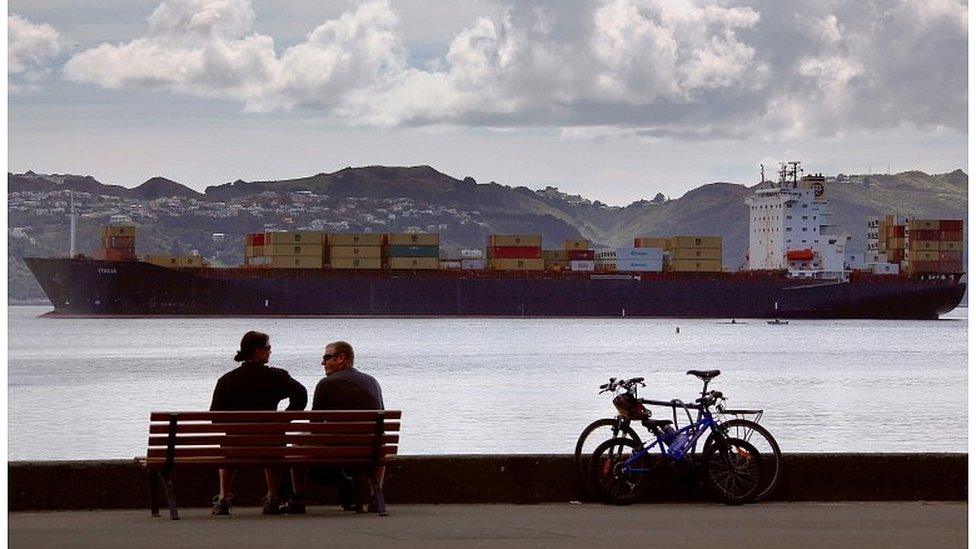
- Published11 November 2017
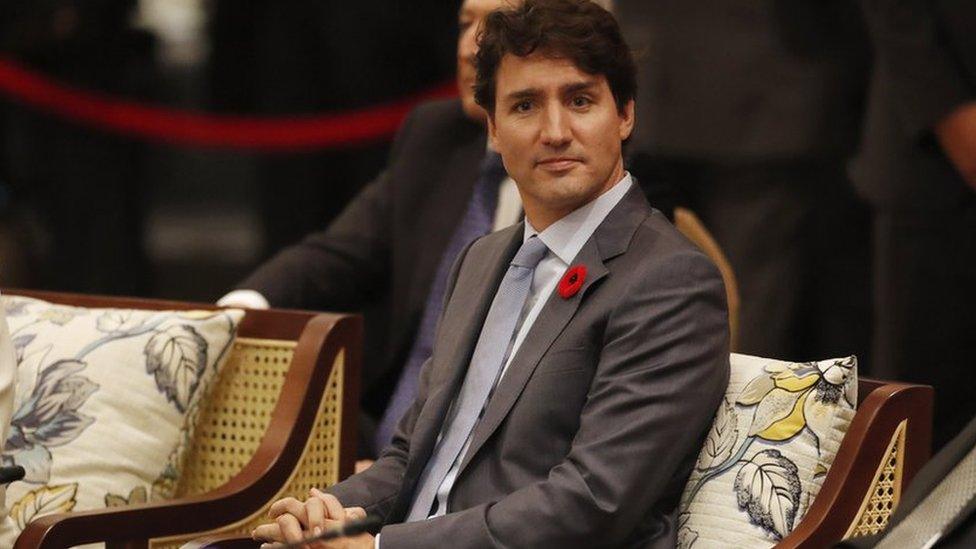
- Published7 November 2017
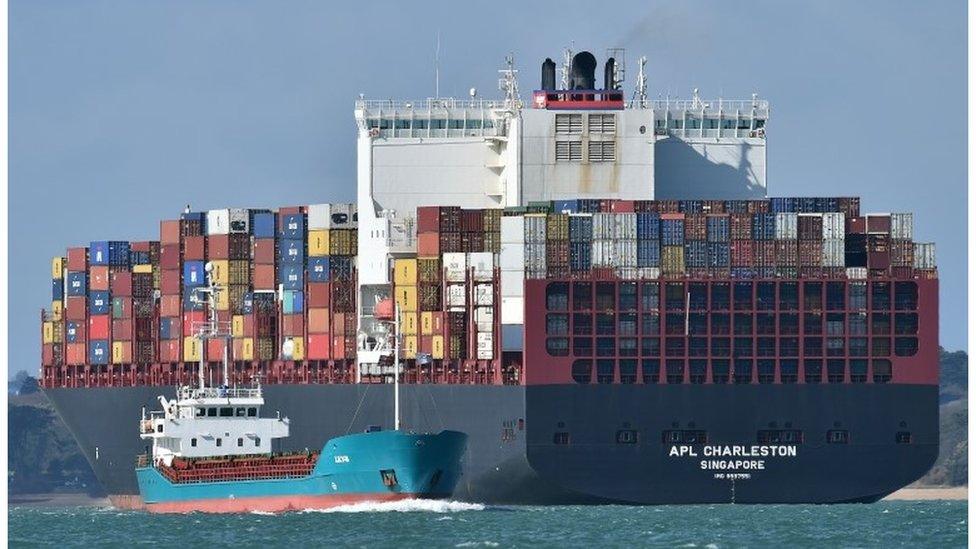
- Published24 January 2017
